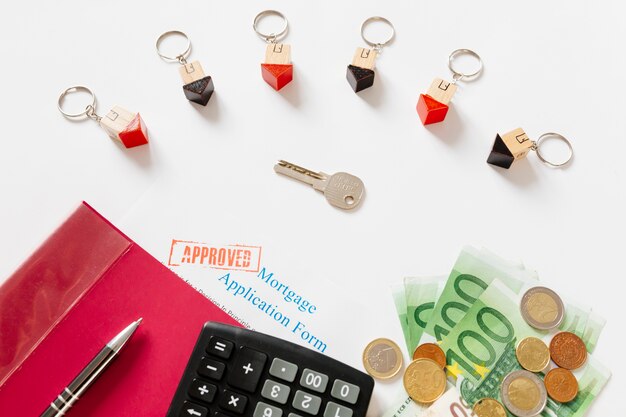Legal Steps After a Car Accident
Ellie Moore

Photo: Legal Steps After a Car Accident
Legal Steps After a Car Accident: A Complete Guide to Navigating Your Rights and Responsibilities
Car accidents can be overwhelming, both physically and emotionally. Whether you’re involved in a minor fender bender or a more serious crash, knowing the legal steps to take immediately after the accident is crucial. These steps not only ensure your safety but also protect your legal rights and help you secure any compensation you might be entitled to.
In this comprehensive guide, we'll break down the legal steps after a car accident and give you actionable insights on what to do in the hours, days, and weeks following an incident. Whether you're a driver, passenger, or a bystander, these steps will guide you through the process in a way that minimizes stress and maximizes your chances for a positive outcome.
1. Ensure Safety First: Check for Injuries and Call Emergency Services
The first and foremost step after any car accident is ensuring safety. Here’s what you need to do:
- Check for injuries: If you're able to, immediately check yourself, your passengers, and other people involved in the crash for injuries. If someone is hurt, call 911 immediately.
- Move to a safe area: If the accident is minor and your car is still operational, move your vehicle to the side of the road to avoid blocking traffic or creating a further hazard.
- Call emergency services: Even if no one seems to be injured, it’s important to notify law enforcement. In many jurisdictions, an official accident report is required for legal and insurance purposes. Officers can document the scene and provide an unbiased account of the accident.
It’s easy to feel overwhelmed right after an accident, but remaining calm and focusing on safety first can set the tone for how things unfold.
2. Exchange Information with All Parties Involved
One of the critical legal steps after a car accident is exchanging information. This information will be necessary for insurance claims and any potential legal action. Here's what to collect:
- Driver’s license and license plate numbers: Ensure you gather the names and contact information of all drivers involved in the accident.
- Insurance information: Exchange your car insurance details, including the company, policy number, and phone number.
- Witness information: If there are any witnesses to the accident, make sure to get their contact details. They can provide valuable testimony if disputes arise.
- Photos and documentation: Take photographs of the accident scene, vehicle damages, road conditions, and anything else that may be relevant. This can be crucial when presenting your case.
Having detailed information on hand is vital for filing insurance claims and in case of any legal disputes. It can be a lifesaver if the other party tries to dispute your version of events.
3. Notify Your Insurance Company
Your insurance company must be informed as soon as possible after an accident. Timely notification can impact your claim and any benefits you're entitled to. Here’s what you should do:
- Report the accident immediately: Most insurers require that you report any accidents promptly. Check your policy to find the exact timeline, but it’s generally advisable to notify them within 24 hours.
- Provide accurate details: Give your insurer a clear and honest account of the accident. Avoid admitting fault or making speculative statements. Let the insurance adjuster investigate the facts.
- Follow their instructions: Your insurer might request additional documentation, such as a police report or medical records. Make sure you comply with their requests to avoid delays.
Filing your claim properly and on time ensures you're protecting your rights and starting the process for compensation.
4. Seek Medical Attention, Even If You Feel Fine
Even if you feel perfectly fine after the accident, it's important to visit a doctor. Some injuries, like whiplash or internal trauma, may not show immediate symptoms but can have long-term effects. Here’s why this step is vital:
- Document your injuries: Medical documentation will serve as critical evidence if you need to pursue legal action or file an insurance claim. This ensures that your injuries are linked directly to the car accident.
- Get treatment early: Early treatment can help with recovery and also prevent the other party from claiming your injuries weren’t serious or were unrelated to the crash.
Delaying medical treatment could hurt both your physical health and any legal claims down the line.
5. Consult a Personal Injury Attorney
If the car accident resulted in serious injuries or significant damages, consulting a personal injury attorney can be a wise decision. Here’s why:
- Legal guidance: An attorney will guide you through the process, helping you understand your rights, possible compensation, and legal options. They will also advise on whether you should settle with the insurance company or pursue a lawsuit.
- Maximize compensation: A qualified lawyer can help you secure the maximum compensation for your injuries, lost wages, and pain and suffering. They can also handle negotiations with the insurance company to ensure a fair settlement.
- Peace of mind: Having an experienced attorney by your side can alleviate the stress of dealing with the aftermath of an accident.
If you're unsure whether you need legal representation, a consultation can help you understand your options. Many attorneys offer free consultations.
6. Keep Track of All Expenses and Documentation
From medical bills to repair costs, it's crucial to keep track of all expenses related to the accident. This includes:
- Medical bills: Document all your doctor visits, treatments, medications, and any other healthcare-related costs.
- Car repairs: Keep receipts and estimates for vehicle repairs or replacements.
- Lost wages: If you had to miss work due to your injuries, keep a record of your lost income.
These documents will play a significant role in proving the extent of your damages and can help you claim the right amount of compensation.
7. Understand Your Insurance Policy and Legal Rights
Insurance policies and legal procedures can be tricky to navigate, but understanding the basics will empower you to make informed decisions:
- Know your coverage: Review your insurance policy to understand the coverage options, including liability, medical payments, collision, and uninsured motorist coverage.
- Understand state laws: Car accident laws vary from state to state. Some states follow "no-fault" insurance systems, while others adhere to "at-fault" laws. Knowing the laws in your area can help you understand your responsibilities and rights.
- Legal timelines: Be aware of any statutes of limitations for filing claims or lawsuits. If you wait too long, you may lose your right to compensation.
A clear understanding of your insurance and legal rights will prevent confusion and ensure you’re adequately protected.
8. File a Lawsuit if Necessary
In cases where the other party is at fault and refuses to cooperate, or if the insurance company offers an insufficient settlement, filing a lawsuit may be necessary. Here's what to consider:
- Discuss with your attorney: If negotiations fail, your lawyer will help you decide whether to take legal action.
- Prepare for court: A lawsuit can take time, but with the right evidence, your case can succeed in securing fair compensation.
Though most cases settle before going to court, having the option to file a lawsuit provides leverage during negotiations.
Conclusion: Stay Informed and Take Action
Navigating the legal steps after a car accident can feel like a daunting task, but by following these steps carefully, you can protect yourself and secure your rights. Remember to stay calm, gather all necessary information, consult with an attorney if needed, and keep thorough records of all expenses and documentation.
While the aftermath of a car accident is stressful, being proactive and informed will give you the best chance of receiving fair compensation and moving forward with peace of mind. Always consult a legal professional to ensure that you're taking the right steps for your specific situation.
Frequently Asked Questions
Q: How soon should I report an accident to my insurance company? A: You should report the accident as soon as possible, usually within 24 hours, depending on your policy requirements.
Q: Do I need to hire an attorney after a car accident? A: If you’ve suffered significant injuries or the accident is complicated, hiring an attorney can help ensure you receive the compensation you deserve.
Q: What should I do if the other driver doesn't have insurance? A: If the other driver is uninsured, you may be able to file a claim with your own uninsured motorist coverage, assuming you have it.
Finance & Investment
View All
March 21, 2025
Kia Finance Phone Number and Quick SupportUnlock top rankings with expert SEO content. Learn how E-E-A-T (Experience, Expertise, Authoritativeness, Trustworthiness) creates valuable, people-first conten...
Ellie Moore

November 16, 2024
Top 5 Budgeting Apps That Will Save You Money InstantlyDiscover the top budgeting apps that will transform your financial life! Learn how these apps can help you track expenses, save money, and achieve your financial goals. Download now and start saving!
Ellie Moore

June 7, 2025
How Co Financed Projects Drive Big SuccessDominate search results with expert SEO content. Discover how to create high-quality, authoritative content that meets user intent and builds E-E-A-T.
Ellie Moore

November 23, 2024
7 Ways to Prepare Financially for a RecessionRecession-proof your finances with these 7 essential strategies! Learn how to prepare for economic downturns, protect your assets, and navigate financial challenges. Start building resilience today!
Ellie Moore

November 17, 2025
Muslim Friendly Car Finance OptionsUnlock higher rankings & build trust with expert SEO content. Learn how E-E-A-T drives organic traffic & conversions for lasting online success.
Ellie Moore

January 13, 2025
Owner Financing Homes in San AntonioGo beyond basic SEO. Learn to create expert content that leverages E-E-A-T to build credibility, rank higher, and truly engage your audience in 2024.
Ellie Moore
Insurance
View AllProtect your freelance career with tailored insurance. Discover coverage options for self-employed individuals.
Ellie Moore
Is pet insurance right for you? Explore the pros, cons, and costs of coverage to keep your furry friend healthy.
Ellie Moore
Don't let vet bills break the bank. Discover top pet insurance solutions to secure your furry friend's health and your financial peace of mind.
Ellie Moore
Protect your assets! Secure optimal premium renters insurance coverage & peace of mind. Avoid financial loss with our comprehensive guide.
Ellie Moore
Discover how lifestyle changes, like quitting smoking or driving less, can unlock insurance discounts. Start saving now!
Ellie Moore
Protect your paycheck with disability insurance. Learn why income protection is a must-have for financial security.
Ellie Moore
Education
View AllLifelong learning is the new normal! Discover why continuous learning is essential for personal growth, career success, and adapting to change.
Read MoreHelp students develop a love for learning! Discover effective ways to foster a growth mindset in students and promote lifelong success.
Read MoreUnderstanding memory is key to better teaching. Learn how memory functions and how to use this knowledge to enhance teaching techniques.
Read MoreDigital citizenship teaches responsible tech use. Learn how to help students navigate the digital world safely and ethically.
Read MoreMOOCs are transforming the landscape of higher education. Learn how massive open online courses are making learning accessible to all.
Read MoreHelp students master metacognition! Learn how teaching students to think about their thinking can improve problem-solving and critical thinking skills.
Read MorePopular Post 🔥
View All
1
2
3
4
5
6
7
8
9
10
Health






Automotive
View All
September 3, 2025
Best Automotive Polishing Compound For Shine
Transform your car's paint! Discover how to use automotive polishing compounds to eliminate defects & achieve a brilliant, mirror-like shine.

July 19, 2025
What You Should Know About Semi Automotive Parts
Demystify semi-automotive parts! Learn what they are & why they're crucial for your vehicle's safety, performance, and longevity. Essential guide for car owners...

August 19, 2025
B and D Automotive Honest Car Repairs
Tired of auto repair uncertainty? B and D Automotive builds trust with honest, transparent service, fair pricing, and genuine care for your vehicle.

February 15, 2025
Vehicle Recalls: What You Need to Know
Concerned about a vehicle recall? Learn what steps to take and how to stay informed about recalls affecting your car. Stay safe on the road!

July 17, 2025
JT Automotive Services Worth Checking Out
Unlock peace of mind & vehicle longevity. Discover why choosing the right car care partner, like JT Automotive Services, truly matters.

August 9, 2025
Launch Automotive Scan Tool Features And Benefits
Master your car's health with Launch scan tools. Get deep insights, accurately diagnose issues, and save on costly repairs.

















